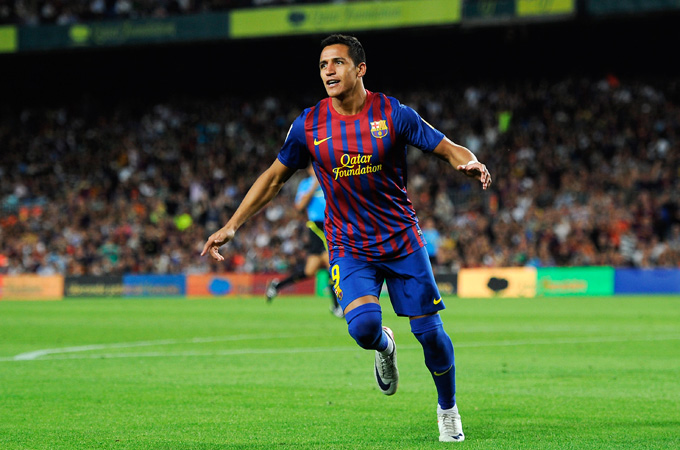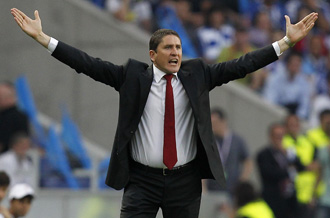La Liga: The two horse race
The continued dominance of Barcelona and Real Madrid in the Primera Division is a growing concern for Spanish football.

 |
| New signing Alexis Sanchez scored on his debut for Barca after costing the club over $40 million [GALLO/GETTY] |
Although the two teams of Manchester shone in the Premier League last weekend, the English top flight can still claim to have three or four clubs battling for the trophy.
Over in Spain, things are not quite so competitive.
Keep reading
list of 4 itemsHolders Man City go out of Champions League on penalties to Real Madrid
Barca crash out as Mbappe brace leads PSG to Champions League last four
Saudi reviews football fan rules after whip attack
In the Spanish Primera Division two teams are, as always, streets ahead of the others in terms of skill, finance and publicity.
Real Madrid and Barcelona both opened the season with crushing victories that signalled the top two’s seven-year monopoly of the Spanish league will continue.
Three-time defending champions Barcelona routed Villarreal 5-0 on Monday, a day after Madrid beat Zaragoza 6-0.
|
“I give it three or four years but either this changes or we will kill Spanish football” Villarreal president Fernando Roig |
Villarreal, playing in the Champions League, were considered one of few legitimate contenders with Valencia capable of dislodging the top two.
That prospect appears slim in a league often referred to as the “Scotland of the south,” since the top two powers remain unchanged as revenues and results continue to grow apart.
“If they want only two games per season then let them have two games but this is not good for football,” Villarreal president Fernando Roig said, referring to the always anticipated clasico between Barcelona and Real Madrid.
“I give it three or four years but either this changes or we will kill Spanish football.”
Seven years of spending
No other team since Valencia in 2004 has won the league, and while Villarreal and Sevilla have challenged since, there has been no change at the top.
Since 2009, Madrid has spent approximately $500 million on the likes of Cristiano Ronaldo, Kaka and Karim Benzema while Barcelona has tallied over $290 million in spending on David Villa, Cesc Fabregas, Alexis Sanchez and Zlatan Ibrahimovic over that period.
“There’s a difference between what some are spending and what others are and from that you can start to deduct the reasons,” Villarreal coach Juan Carlos Garrido said.
“In terms of economic might, they are generating a great difference in revenue compared to the rest of the teams who can only try and do the best possible and fight for everything they can.”
Sevilla president Jose Maria del Nido was even more stern against a league that considers itself a rival of England’s Premier League as the world’s best.
 |
| Villarreal’s Juan Carlos Garrido is frustrated at how difficult life is for other clubs [GALLO/GETTY] |
“Our league isn’t the biggest joke in Europe but in the world,” Del Nido said on Tuesday.
“It’s a third-world league where the two top clubs suck in the television money that the rest of us help bring in. We’re doing harm to the prestige of the Spanish league.”
While Roig signalled that improving television contracts was part of the problem – Barcelona’s and Madrid’s approximate $360 million in TV revenues accounts for at least half of the money distributed to the 20 topflight clubs – Del Nido said further moneys should come from selling the rights to radio.
There is currently such a standoff, as radio stations have been barred access to many stadiums as the pair squabble over licensing.
The Spanish season was also delayed because of a strike, with the players union saying 50 players were owed over $72 million in back wages. A deal was eventually secured to avoid postponing the second round of games.
There are currently six topflight clubs in bankruptcy protection.
So while Barcelona, the European champions, and Madrid’s play dazzles and puts them among the world’s best, the rest scrap for the leftovers – two qualifying spots in the Champions league and in the Europa League.
“I prefer not to get upset about it, but it’s the reality,” Garrido said.
“The differences are amplified with Madrid and Barca securing extraordinary transfers and very important players and you have to recognise those clubs are a level above.”
What exactly this means for Spanish football in general, only time will tell.
However, with two teams tearing further and further away from the pack, a lack of competitiveness is likely to be a negative thing for a passionate footballing nation.